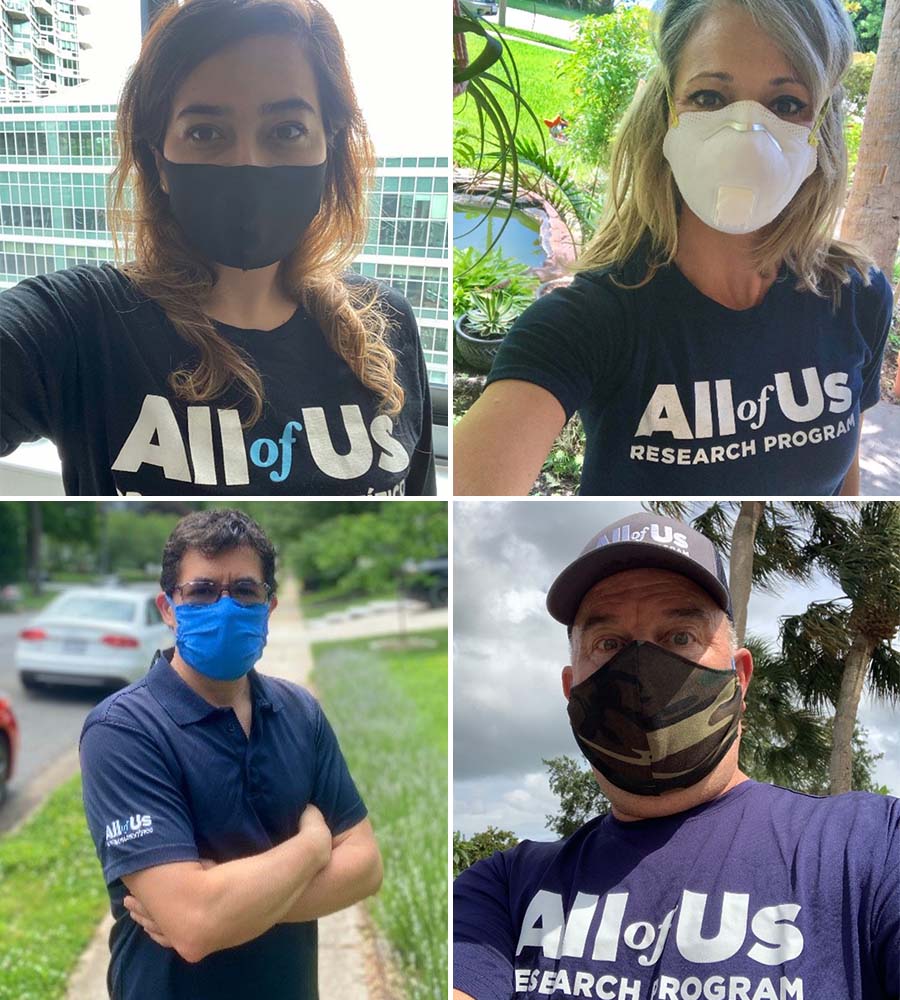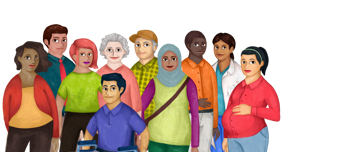
The All of Us Research Program has released additional data on people’s experiences with the COVID-19 pandemic. The new data come from three different sources: surveys, electronic health records (EHRs), and wearable devices, such as Fitbits, which should be of particular interest to epidemiologists, mental health scientists and researchers focused on health disparities.
The new data are part of a "Registered Tier refresh." This is the second update of data since All of Us launched the Researcher Workbench in May 2020 and also includes data unrelated to the pandemic.
"Our most remarkable work is the electronic health record data—the volume of data and the diversity of the participants represent an area of real opportunity for research," said Chris Lunt, the All of Us Research Program’s chief technology officer. "The program’s intent over time is to be able to illuminate the entire course of somebody’s health experience. Every time we release more data, we’re getting to turn the next page in that experience."
All of Us researchers can now access curated data provided by nearly 330,000 participants who represent a wide range of ages, races, gender identities, sexual orientations, and socioeconomic levels.
The new data release includes results from the COVID-19 Participant Experience (COPE) survey. The COPE survey explored participants’ experiences during the COVID-19 pandemic and was administered three times during the winter of 2020–2021. New responses from more than 35,000 participants augment the earlier responses from 64,000 participants already in the Researcher Workbench. Initial COPE survey data from summer 2020 were released in the December 2020 data release. The data now offer a longitudinal view over more than eight months. Participants shared insights about life, symptoms, and how they managed mentally and emotionally.
More than 11,600 participants linked their personal Fitbit data with their All of Us accounts, providing the first data collected during the pandemic to come from people using wearables. Additionally, COVID-19 EHR data are now available. Data around vaccination status will be released in future data expansions. Together, the combined data from wearables, EHRs, and the longitudinal COPE survey provide a unique dataset for addressing important questions related to the pandemic.
Together, the data provide a more comprehensive picture of that period of time. "Researchers can look at how staying at home affected the mental health and physical activities of our participants and correlate it with Fitbit data to see if their physical activity increased or decreased," said Melissa Patrick, a research support project manager for the workbench.
The Fitbit data include daytime physical activity, such as how many steps wearers got in, as well as heart rates. All of Us has one of the largest and most diverse publicly available datasets from digital health technology and will continue to expand it.
"Wearables data provide unique insight in a participant’s day-to-day activities. I know researchers are looking forward to seeing more from this datatype in this upcoming release," said Adrienne Roman, a research support project manager for the workbench. "Understanding its importance, we are always looking to provide more digital health data to our users. You’ll be seeing our efforts come to fruition as this datatype grows."
With new data come caveats, of course. More granular data, such as COVID-19 vaccination status, remains suppressed in EHRs in order to protect participants against the risk of reidentification. Ensuring participants’ security and privacy is one of All of Us' core values.
More than 1,000 researchers have registered to use the Researcher Workbench. Work is underway on more than 670 projects. To learn more, visit https://www.researchallofus.org/discover/covid-19-research-initiatives to see how this robust dataset can power your research.
This article appeared in the September 2021 issue of All of Us Research Roundup. If you would like to receive the quarterly researcher newsletter directly, you can SUBSCRIBE HERE.
